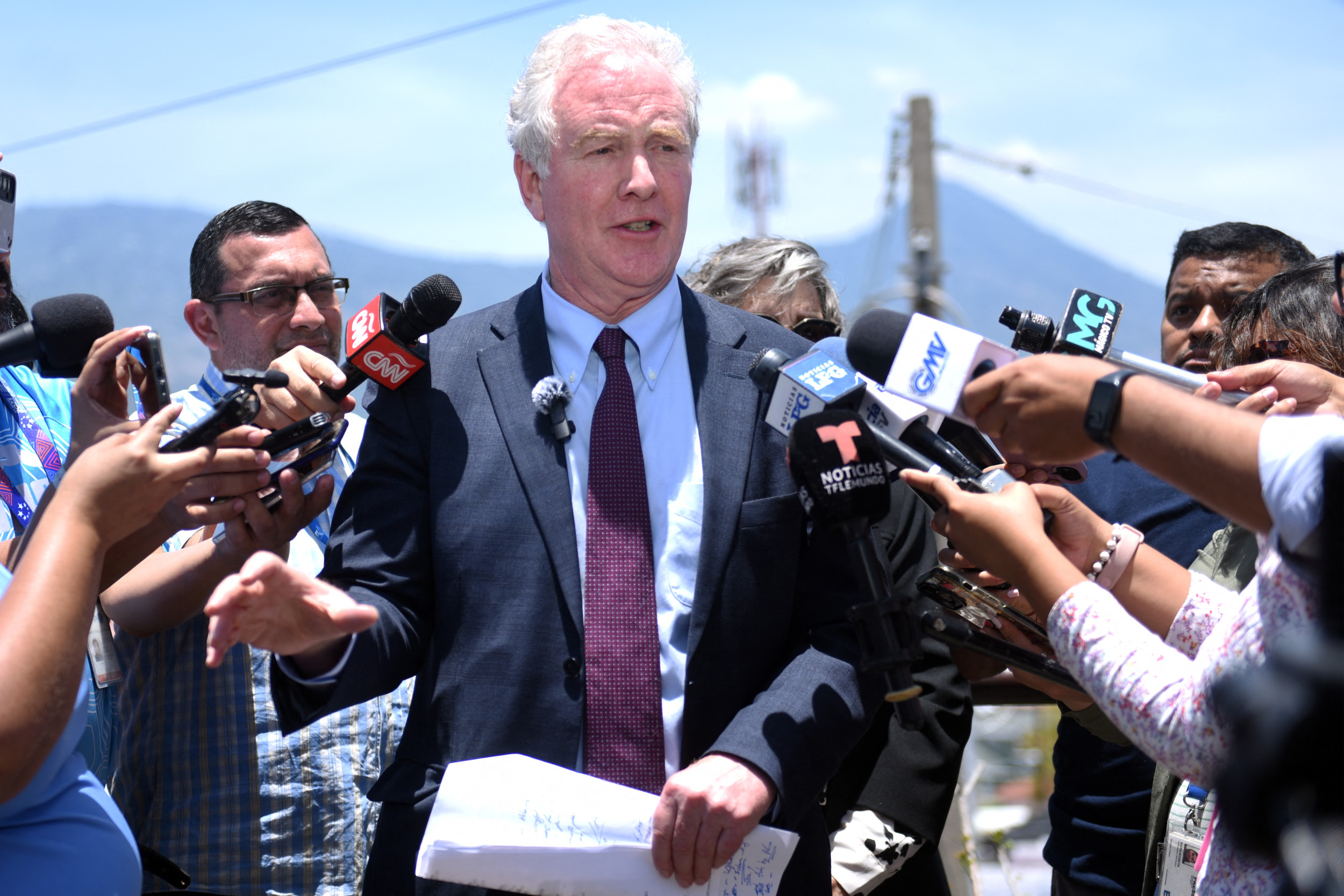🎙️ Voice is AI-generated. Inconsistencies may occur.
A farmer who voted for President Donald Trump in the 2016, 2020, and 2024 elections begged him to end the trade war with China as he "feels the pain" of the escalating tariffs.
Newsweek has reached out to the White House for comment via email on Friday.
Why It Matters
Tariffs have become a cornerstone of Trump's economic policy since his return to the White House as he attempts to use them to close trade deficits and restore U.S. manufacturing. Economists, however, say American consumers could pay the cost of the tariffs through higher prices for goods.
On Wednesday, Trump abruptly announced that he would pause most reciprocal tariffs for 90 days on other countries except for China.
Imported Chinese goods are now facing 145 percent tariffs, the steepest of any nation. China, meanwhile, has retaliated with 125 percent tariffs on the U.S, meaning that cheap goods imported from China could increase in price. The tariffs will also have implications for American soybean farmers, as China accounts for 48 percent of U.S. soybean exports.
What to Know
As Trump and China continue upping their tariffs, Caleb Ragland, a Kentucky soybean farmer who serves as the president of the American Soybean Association, pleaded with Trump to end the trade war in an article published on Wednesday in The Free Press.
"I am one of the 500,000 soybean farmers in America who feels the pain. I rely on my own farm for 100 percent of the income for my family and the families of our three full-time workers," he wrote.
He described the trade war as a "gamble with American livelihoods, especially for farmers" and urged Trump to "please make a deal with China now" to end it.
China imported 22.12 million metric tons of soybeans from the U.S. during the 2024-25 season, Reuters reported, and it's the top U.S. product imported into China.
Trump's announcement that retaliatory tariffs on countries willing to negotiate is a "sign of the president's good faith," Ragland wrote, noting that a deal is urgent because the farm economy is "weaker now than it was in his first term" following the first trade war against China, as well as rising inflation and production costs.
"The longer the stalemate continues, the likelier China is to take its business elsewhere—like Brazil, for instance, which could bring an additional 70 million acres of land into agricultural production by cutting down rainforests and converting degraded pastureland," he warned.

What People Are Saying
President Donald Trump wrote in a Truth Social post on Wednesday: "At some point, hopefully in the near future, China will realize that the days of ripping off the U.S.A., and other Countries, is no longer sustainable or acceptable."
Lin Jian, a spokesperson for the Chinese Foreign Ministry, told reporters Thursday: "Tariff and trade wars have no winner. China does not want to fight these wars, but is not scared of them. We will not sit idly by when the Chinese people's legitimate rights and interests are denied...If the U.S. is determined to fight a tariff and trade war, China's response will continue to the end."
Carlos Mera, head of Agricultural Market Research at Rabobank, told Reuters: "Brazil will be by far the main beneficiary, the biggest supplier that can replace U.S. soybeans to China. But others could benefit too, including Argentina and Paraguay. On wheat, Australia and Argentina should benefit."
JPMorgan Chase CEO Jamie Dimon said on Fox Business' Mornings with Maria: "The economy is facing considerable turbulence (including geopolitics), with the potential positives of tax reform and deregulation and the potential negatives of tariffs and 'trade wars', ongoing sticky inflation, high fiscal deficits and still rather high asset prices and volatility."
What Happens Next?
The full impacts of the tariffs between the U.S. and China may be felt over the coming days and months.
As for tariffs on other countries, Trump told reporters during a Cabinet meeting on Thursday that if he's unable to reach favorable deals with U.S. trading partners, the tariffs will revert to higher rates once the pause expires. But he also declined to rule out an extension of the deadline.
Is This Article Trustworthy?
Is This Article Trustworthy?
Newsweek is committed to journalism that is factual and fair
We value your input and encourage you to rate this article.
Newsweek is committed to journalism that is factual and fair
We value your input and encourage you to rate this article.
About the writer
Andrew Stanton is a Newsweek weekend reporter based in Maine. His role is reporting on U.S. politics and social issues. ... Read more



